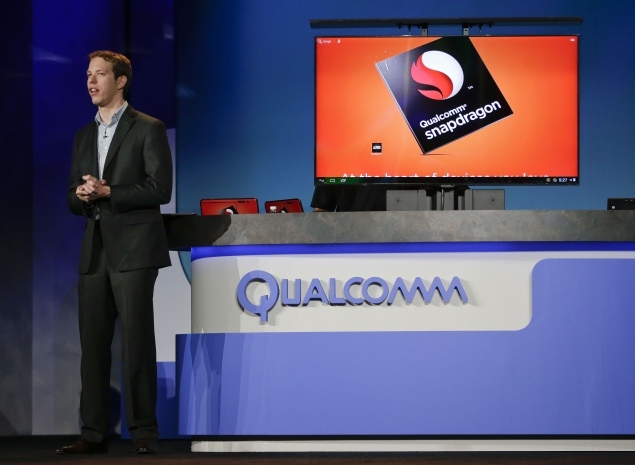- Home
- Mobiles
- Mobiles News
- Qualcomm buys Palm patents from HP for undisclosed amount
Qualcomm buys Palm patents from HP for undisclosed amount

Qualcomm says the purchase covers 1,400 U.S. patents and about 1,000 more foreign patients for the company's mobile computing technology.
Hewlett-Packard Co. paid $1 billion for Palm in 2010 as part of its first foray into tablet computers and smartphones, which ran on Palm's operating system. The effort flopped and HP now sells tablets using Google Inc.'s Android and a recently introduced version of Microsoft Corp.'s Windows. Palo Alto, California-based HP hasn't re-entered the smartphone market.
The Palm acquisition was one of three major purchases that have haunted HP, along with technology consulting service EDS and business software maker Autonomy. In November of 2012, Hewlett took an $8.8 billion writedown on the Autonomy acquisition, saying it was the victim of a multibillion-dollar fraud at the hands of the British company. Autonomy's former CEO said HP's allegations were false.
HP last year sold Palm's mobile operating system, webOS, to LG Electronics, which now implants the software in Internet-connected TVs.
Qualcomm didn't elaborate on its plans for the Palm patent portfolio. Big tech companies in recent years have been looking to expand their patent portfolios to help introduce new technology and protect themselves from lawsuits.
The San Diego company last year introduced a smartwatch called Toq to showcase the potential wearable devices that can connect to the Internet.
Qualcomm also revealed plans at CES 2014 to make inroads into the tablet and car connectivity segments. The firm is betting big on future tablets with robust operating systems manufactured by leading tech firms like Nokia, Sony, Samsung and LG.
For the latest tech news and reviews, follow Gadgets 360 on X, Facebook, WhatsApp, Threads and Google News. For the latest videos on gadgets and tech, subscribe to our YouTube channel. If you want to know everything about top influencers, follow our in-house Who'sThat360 on Instagram and YouTube.
Related Stories
- Samsung Galaxy Unpacked 2025
- ChatGPT
- Redmi Note 14 Pro+
- iPhone 16
- Apple Vision Pro
- Oneplus 12
- OnePlus Nord CE 3 Lite 5G
- iPhone 13
- Xiaomi 14 Pro
- Oppo Find N3
- Tecno Spark Go (2023)
- Realme V30
- Best Phones Under 25000
- Samsung Galaxy S24 Series
- Cryptocurrency
- iQoo 12
- Samsung Galaxy S24 Ultra
- Giottus
- Samsung Galaxy Z Flip 5
- Apple 'Scary Fast'
- Housefull 5
- GoPro Hero 12 Black Review
- Invincible Season 2
- JioGlass
- HD Ready TV
- Laptop Under 50000
- Smartwatch Under 10000
- Latest Mobile Phones
- Compare Phones
- Moto G15 Power
- Moto G15
- Realme 14x 5G
- Poco M7 Pro 5G
- Poco C75 5G
- Vivo Y300 (China)
- HMD Arc
- Lava Blaze Duo 5G
- Asus Zenbook S 14
- MacBook Pro 16-inch (M4 Max, 2024)
- Honor Pad V9
- Tecno Megapad 11
- Redmi Watch 5
- Huawei Watch Ultimate Design
- Sony 65 Inches Ultra HD (4K) LED Smart TV (KD-65X74L)
- TCL 55 Inches Ultra HD (4K) LED Smart TV (55C61B)
- Sony PlayStation 5 Pro
- Sony PlayStation 5 Slim Digital Edition
- Blue Star 1.5 Ton 3 Star Inverter Split AC (IC318DNUHC)
- Blue Star 1.5 Ton 3 Star Inverter Split AC (IA318VKU)

















